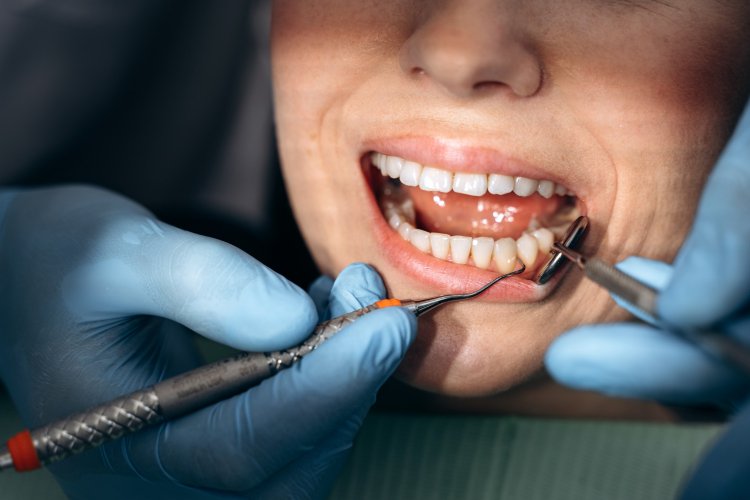Tartar Trouble: Managing and Preventing Dental Buildup
Dental tartar, also known as calculus, is a hardened deposit that forms on teeth due to the mineralization of dental plaque. It poses significant risks to oral health if not managed properly.

Formation Process of Dental Tartar
Dental tartar develops when plaque, a sticky film of bacteria that forms on teeth, mineralizes and hardens over time. Plaque constantly forms on teeth, and if not removed regularly through proper oral hygiene, it can mineralize into tartar. Factors contributing to its formation include poor oral hygiene practices and a diet high in sugars and starches.
Health Impacts of Dental Tartar
Dental tartar can lead to several oral health issues:
Gingivitis
Tartar buildup irritates gums, causing inflammation and gingivitis. Symptoms include red, swollen gums that may bleed during brushing.
Periodontitis
Untreated gingivitis can progress to periodontitis, a more severe gum disease. This can lead to gum recession, bone loss around teeth, and potentially tooth loss.
Diagnosis and Detection of Dental Tartar
Diagnosing dental tartar involves:
Visual Examination
Dentists visually inspect teeth for tartar during routine check-ups.
Dental X-Rays
X-rays may be used to detect tartar below the gum line, where it cannot be seen during a visual examination.
Prevention Strategies
Preventing dental tartar buildup is essential for maintaining good oral health:
Effective Oral Hygiene
Brush teeth thoroughly at least twice daily with fluoride toothpaste, focusing on all tooth surfaces and along the gum line. Floss daily to remove plaque between teeth and under the gum line.
Regular Dental Cleanings
Schedule professional cleanings every six months or as recommended by your dentist to remove tartar and plaque that regular brushing and flossing may miss.
Healthy Diet
Limit sugary and starchy foods and beverages, as these promote plaque formation.
Treatment Options
If tartar has already formed, treatment options include:
Scaling
Dentists use specialized instruments to remove tartar from the surfaces of teeth above and below the gum line.
Root Planing
In more advanced cases, root planing smooths the root surfaces of teeth to prevent bacteria buildup and promote gum reattachment.
Polishing
After scaling, polishing helps smooth tooth surfaces to make it harder for plaque to accumulate.
Complications and Advanced Stages
Advanced tartar buildup can lead to severe complications in oral health, including increased risk of systemic diseases such as cardiovascular conditions. Early detection and treatment are crucial to preventing these complications.
Dental tartar is a preventable oral health issue that requires regular care and maintenance. By adopting good oral hygiene habits, scheduling regular dental check-ups, and making healthy lifestyle choices, individuals can effectively prevent tartar buildup and maintain a healthy smile.
Disclaimer
The information provided in this article is for educational purposes only and should not be considered medical advice. If you have any health concerns or are experiencing symptoms, it is important to consult with a healthcare professional, such as a doctor or clinic, for proper diagnosis and treatment. Always seek the advice of your doctor or other qualified health provider with any questions you may have regarding a medical condition. Do not disregard professional medical advice or delay in seeking it because of something you have read in this article.
Hashtags
#DentalHealth #OralHygiene #TartarRemoval #HealthySmile #PreventiveCare
What's Your Reaction?





















